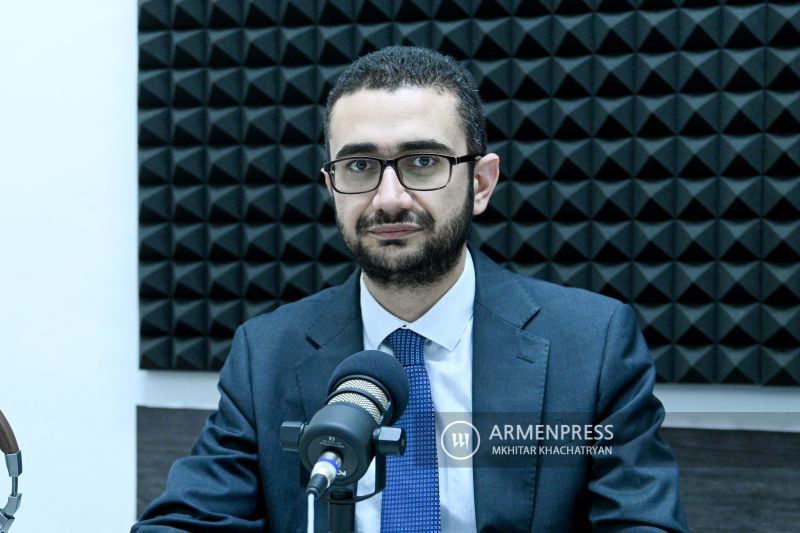‘The biggest change in migration sector’ – Migration Service chief on structure's upcoming merger into new ministry
5 minute read

YEREVAN, JULY 13, ARMENPRESS. The works on developing the package of creating a Ministry of Internal Affairs are being completed, and accordingly, the Police, the Rescue Service and the Migration Service of Armenia will be merged into the new ministry, Head of the Migration Service Armen Ghazaryan said in an interview to Armenpress, calling this re-organization efficient.
“From the very beginning of developing the package of the Ministry of Interior, the Migration Service has been involved in these activities. The main issues which we have voiced, such as issues connected with policy development and implementation, separation, functional chain integration, distribution of migration functions in different agencies and as well as those connected with revision, have been reflected in the package”, he said, adding that the package is currently in the stage of being amended and will soon be submitted for both the public debate and the parliament’s approval.

Armen Ghazaryan said that there is a non-standard situation in Armenia regarding the management of migration, and the culture of migration policy as a function is currently not assigned to any ministry at a legislative level.
“Currently, the strategic documents of the migration policy are being developed by the Migration Service which is not right because the Migration Service is a body subject to the ministry, which should implement the policy and participate in the policy development, but not to develop a policy. And this problem is being solved by the creation of the Ministry of Interior. The development of migration policy will be assigned to the Ministry of Interior, and its implementation to the Migration Service”, he added.
As for the function, the Migration Service chief said that the functions relating to the migration field are spread throughout the state system, and the decentralized management in this sector is not effective.
“Several functions in terms of the management of the field are carried out by the Migration Service, some by the Ministry of Labor and Social Affairs, the others by the Police, and problems emerge very often in terms of mutual cooperation, in terms of service delivery time delay and comparability of the database. But all these problems will be solved as a result of the structural change, which is a reform based on a functional analysis”, he stated.
Mr. Ghazaryan noted that traditionally the Migration Service has implemented the services relating to social protection and social assistance. “For instance, currently we are implementing a housing program for persons who were forcefully displaced from Azerbaijan and live in temporary shelters, but these are not migration issues, and the Migration Service does not have the capacity required for providing such service. We are successfully implementing it with our resources, but this should be transferred to the Ministry of Labor and Social Affairs. The function of integrating foreigners, refugees and returning citizens is a social function itself because social assistance, need assessment are its components and it should be carried out by the social service”, he added.
Touching upon the challenges, the Head of the Migration Service said that there are numerous challenges because this is the largest structural change in the migration sector and these changes will be definitely accompanied by challenges.
“The first one is the adaptation to the new situation because we are putting completely new tasks before the services. It is first of all the increase in quality of the service. The second major challenge is that we prepare and are going to implement large-scale digitization processes which is accompanied by both the necessity of training the staff and raising awareness among citizens. We see quite often that the state is digitizing some services, but citizens are not aware of them and sometimes do not have the capacities to use that services”, Armen Ghazaryan said.
He informed that providing employment-based residence status has already been digitized, and they will soon introduce the public and foreigners visiting Armenia on those changes.
Interview by Ani Danielyan